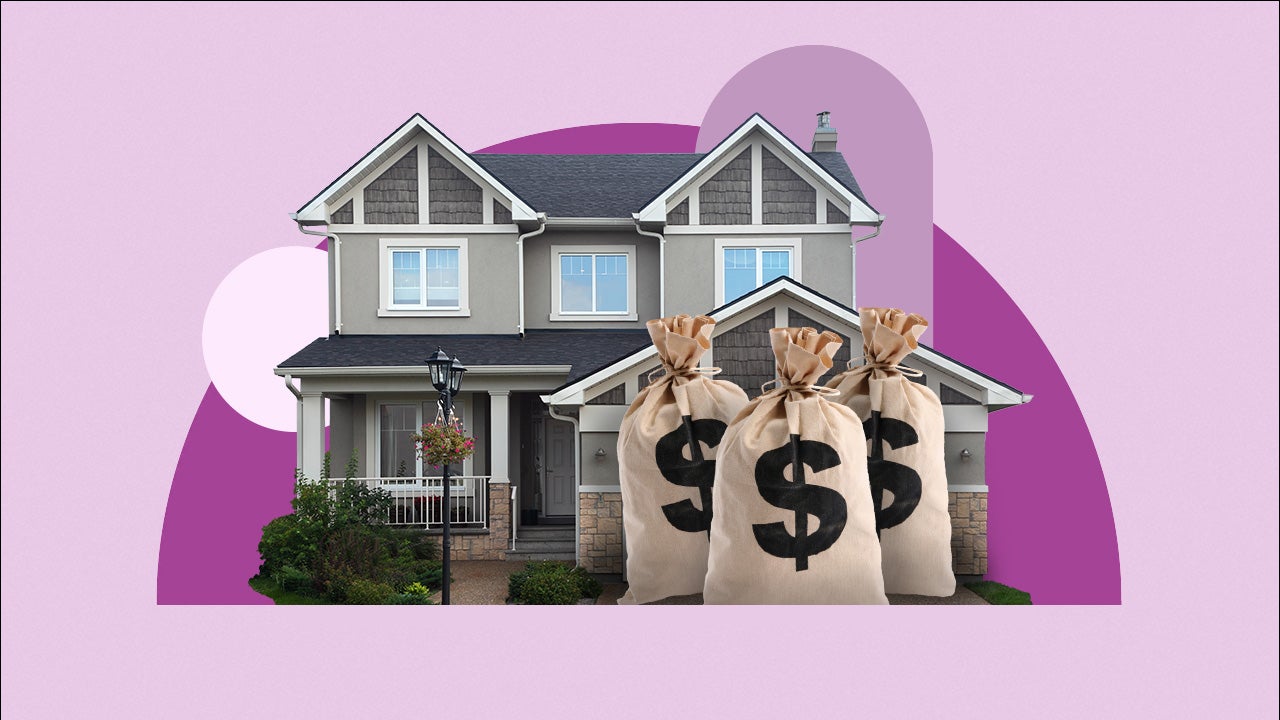Ask Bankrate: How much do you need in savings to buy a home?

Ask Bankrate is a recurring feature where Bankrate’s experts answer your financial questions. Visit this page for more information on how to submit your question. Click on a question here to jump straight to it.
Questions:
- How much do you need in savings to buy a home?
- Are refinance fees negotiable?
- Can I quickly access my money with an online bank?
- Should I cash out my 401(k) to use for a down payment?
- With rates low and the market uncertain, where should I put my money?
- Is now a good time to invest in bond funds?
Q1: How much do you need in savings to buy a home?
When looking to be a first-time homebuyer, how much should you have in savings to put toward your home?
— Isaiah
Answered by Greg McBride, CFA, Bankrate chief financial analyst: “This is really two separate amounts: how much you should have in savings and how much of that to put toward your home. Reason being, you don’t want to exhaust your savings just getting into the home. Once you’re a homeowner, you’ll need savings more than ever because of the regular maintenance and repairs, plus the upgrades and enhancements you’ll want to make, especially if the home is a fixer-upper or wasn’t move-in ready. And you’ll need to do all that while maintaining an adequate emergency fund in case of an unexpected job loss, income reduction or medical expense.
If you’re buying a home and plan to be there at least five years, don’t be afraid to make a smaller down payment in order to preserve plenty of savings for closing costs, moving expenses, the new furniture, paint and carpeting all while maintaining an adequate emergency fund. Fannie Mae and Freddie Mac have 3 percent down payment programs, FHA loans offer 3.5 percent down payments, and VA loans and some lender-specific programs have zero down payment options (though I’m not a big fan of that because a down payment gives you instant equity).
Don’t feel like homeownership is ‘20 percent down or bust.’ That’s not the case at all. And don’t sweat having to pay private mortgage insurance (PMI) for a few years if making that smaller down payment. Unless you’re getting an FHA loan, that added expense isn’t forever. Between price appreciation and principal paydown you may have sufficient equity in a few years to eliminate the PMI, especially in areas where homes are appreciating rapidly or for properties that were fixer-uppers and later appraise at notably higher values.”
Q2: Are refinance fees negotiable?
What fees are negotiable on a mortgage refinance?
— Kay M.
Answered by Greg McBride, CFA, Bankrate chief financial analyst: “Fees charged directly by the lender can be negotiated, reduced or avoided by shopping around for the most competitive terms. Lenders don’t work for free, so some compensation is to be expected, but shopping around will help you spot and avoid a fee that is particularly egregious.
You can shop for title and settlement services, and these are often the biggest chunk of closing costs you’ll pay. On a refinance, ask for the ‘replacement rate’ or ‘substitution rate’ of title insurance as this can save a bundle. The Loan Estimate you receive from the lender will show the various fees and even categorize those that you can shop around for and those you cannot. Depending on the state you live in, shopping around for the title policy is a particularly good idea as that may be your most significant savings.”
Q3: Can I quickly access my money with an online bank?
I don’t trust online savings accounts because if I need my money immediately it appears I won’t be able to access it as easily as you can a brick-and-mortar bank. Is this true?
— DF
Answered by Greg McBride, CFA, Bankrate chief financial analyst: “If you define ‘easily’ as being able to instantly transfer the money into your checking account, then perhaps. But by linking an online savings account to the checking account at your current financial institution, you can move the money and have it in your checking account within 1-2 business days. Some online banks even offer an ATM card as an option if you need immediate access to the cash. I wouldn’t let the 1-2 business day time frame deter you from online savings accounts altogether. Instead, maybe keep a little cushion in your checking account or at a savings account with your primary bank and know that if you need a larger amount of money, it is only 1-2 days away. Having it available, but not with immediate access, may also help keep some from raiding the piggy bank too often and leaving themselves short on savings when it is really needed.”
Q4: Should I cash out my 401(k) to use for a down payment?
Should I cash out my 401(k) due to this COVID-19 mess in order to pay my debt down and have money for a down payment for my first home? They are offering a 3 percent penalty vs. 10 percent.
— Linnette
Answered by James Royal, senior investing and wealth management reporter: “Taking money out of your 401(k) is rarely a good decision, and not having funds at retirement is one of Americans’ biggest financial regrets. While you may be able to avoid a 10 percent bonus penalty on your 401(k) (if you qualify for it), you can still be hit with taxes on any gains, sapping your purchasing power. If you’re adding more debt now onto an already-existing debt load, it could create more strain on your finances.
A better course of action is to work on paying down your existing debt first, which actually puts you in a better position to qualify for a low-rate mortgage. And there’s probably no rush to get a mortgage now anyway. The Federal Reserve has said that it’s holding interest rates near zero into 2024, so mortgage rates may well remain low for years. That’s time to put yourself in a better position for a mortgage and set yourself up for success. Start working on a plan to pay down your debt, and you’re already on your way to homeownership.”
Q5: With rates low and the market uncertain, where should I put my money?
With banks not offering great interest rates and the uncertainty of the stock market due to the upcoming election, where should one position their money for dividends and safety?
— Tami
Answered by James Royal, senior investing and wealth management reporter: “The stock market adjusts to information relatively quickly and often six months or more out from an event, so investors trying to avoid a specific event are usually acting much too late.
Often the market will price in a negative event so that if and when the event actually comes to pass, stocks actually move up or at least not further down. Elections are a classic example of investors worrying about a specific candidate, only to have the market perform well during the president’s tenure. The market is always uncertain and concerned about something, but under good presidents and bad, it’s gone up an average of 10 percent annually long term.
However, if you’re thinking of shifting long-term money to earn higher dividends, you might consider switching to dividend-focused funds. Vanguard, for example, offers some high-yield funds weighted heavily on the S&P 500 index but providing a dividend about twice as high as the index’s. But you’ll want to pay close attention to the tax consequences of selling your current investments, and it could make more sense to move into a new investment slowly. Above all, think long term – five years out or more – about your investments so that you can avoid the short-term mentality that seems to dominate the market today.”
Q6: Is now a good time to invest in bond funds?
I’m retired and have a large CD ($150K) coming due in November. With interest rates so low and bond funds high, is this the right time to invest in bond funds?
Thanks,
— Ron D.
Answered by James Royal, senior investing and wealth management reporter: “All bonds and bond funds are not created equal. Short-term bonds may pay as much as or more than a CD, depending on the issuer. Longer-term bond funds may offer a higher yield, but the very long-dated stuff, such as 30-year Treasurys, don’t offer much higher yield than the shorter stuff and will fluctuate tremendously if rates ever do rise again.
Moreover, while some bond funds are passive, investing in a certain class or quality of bonds, others are actively managed and really do add value through trading. So it’s important that you understand exactly what you’re buying, the risks and the costs of the fund.
With rates so low, it’s not a great time to be an income investor, but always try to optimize your decisions where you can. Good luck!”
Why we ask for feedback Your feedback helps us improve our content and services. It takes less than a minute to complete.
Your responses are anonymous and will only be used for improving our website.



